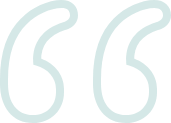Savings
Watch your money grow!
Store your money safely and watch it grow with our great interest rates. Our secure Savings Accounts are designed to help you save for the future. Start today and enjoy peace of mind knowing your money is working for you.Your Kasasa Saver account pairs with your Kasasa Cash Back Checking account to help you earn greater rewards.
- No Minimum Opening Deposit
- No Balance Requirements
- No Service Charge
- Unlimited Transactions
- Monthly Statements
- Monthly Interest Payments

Start saving today with a USLA Savings Account—secure, easy to manage, and designed to grow your money.
- $25 Minimum Opening Deposit
- No Balance Requirements
- No Service Charge
- Unlimited Transactions
- Quarterly Summary Statements (Unless EFT Activity)
- Quarterly Interest Payments

Help your kids start their financial journey with a USLA Kids Savings Account—fun, easy, and secure!
- $5 Minimum Opening Deposit
- No Balance Requirements
- No Service Charge
- Unlimited Transactions
- Quarterly Statements
- Quarterly Interest Payments

Save for the holidays or upcoming event with a USLA Club Savings Account.
- $5 Minimum Opening Deposit
- No Balance Requirements
- No Service Charge
- Unlimited Transactions
- Quarterly Statements
(Unless EFT Activity) - Quarterly Interest Payments

Earn a better interest rate with a USLA Money Market Account—access your money when you need it!
- $100 Minimum Opening Deposit
- No Service Charge for Accounts with $1,000 Daily Average Balance
- Service Charge of $5 for Accounts Below Balance Requirement
- Unlimited Transactions
- Monthly Statements
- Monthly Interest Payments

A Health Savings Account (HSA) is an account established by an individual to pay for medical expenses, allowing you to do so on a tax-favored basis.
You must meet eligibility requirements to have a Health Savings Account.
Frequently asked questions
Lorem ipsum dolor sit amet, consectetur adipiscing elit. Sed ligula lacus, non est aliquet, interdum fermentum magna. Aenean magna, interdum.
Lorem ipsum dolor sit amet, consectetur adipiscing elit. Sed ligula lacus, non est aliquet, interdum fermentum magna. Aenean magna, interdum.
Lorem ipsum dolor sit amet, consectetur adipiscing elit. Sed ligula lacus, non est aliquet, interdum fermentum magna. Aenean magna, interdum.
Lorem ipsum dolor sit amet, consectetur adipiscing elit. Sed ligula lacus, non est aliquet, interdum fermentum magna. Aenean magna, interdum.
Lorem ipsum dolor sit amet, consectetur adipiscing elit. Sed ligula lacus, non est aliquet, interdum fermentum magna. Aenean magna, interdum.
Lorem ipsum dolor sit amet, consectetur adipiscing elit. Sed ligula lacus, non est aliquet, interdum fermentum magna. Aenean magna, interdum.
Lorem ipsum dolor sit amet, consectetur adipiscing elit. Sed ligula lacus, non est aliquet, interdum fermentum magna. Aenean magna, interdum.
Lorem ipsum dolor sit amet, consectetur adipiscing elit. Sed ligula lacus, non est aliquet, interdum fermentum magna. Aenean magna, interdum.
Lorem ipsum dolor sit amet, consectetur adipiscing elit. Sed ligula lacus, non est aliquet, interdum fermentum magna. Aenean magna, interdum.
Lorem ipsum dolor sit amet, consectetur adipiscing elit. Sed ligula lacus, non est aliquet, interdum fermentum magna. Aenean magna, interdum.
Lorem ipsum dolor sit amet, consectetur adipiscing elit. Sed ligula lacus, non est aliquet, interdum fermentum magna. Aenean magna, interdum.
Lorem ipsum dolor sit amet, consectetur adipiscing elit. Sed ligula lacus, non est aliquet, interdum fermentum magna. Aenean magna, interdum.
Lorem ipsum dolor sit amet, consectetur adipiscing elit. Sed ligula lacus, non est aliquet, interdum fermentum magna. Aenean magna, interdum.
Lorem ipsum dolor sit amet, consectetur adipiscing elit. Sed ligula lacus, non est aliquet, interdum fermentum magna. Aenean magna, interdum.
Lorem ipsum dolor sit amet, consectetur adipiscing elit. Sed ligula lacus, non est aliquet, interdum fermentum magna. Aenean magna, interdum.
Lorem ipsum dolor sit amet, consectetur adipiscing elit. Sed ligula lacus, non est aliquet, interdum fermentum magna. Aenean magna, interdum.
Lorem ipsum dolor sit amet, consectetur adipiscing elit. Sed ligula lacus, non est aliquet, interdum fermentum magna. Aenean magna, interdum.
Lorem ipsum dolor sit amet, consectetur adipiscing elit. Sed ligula lacus, non est aliquet, interdum fermentum magna. Aenean magna, interdum.
Lorem ipsum dolor sit amet, consectetur adipiscing elit. Sed ligula lacus, non est aliquet, interdum fermentum magna. Aenean magna, interdum.
Lorem ipsum dolor sit amet, consectetur adipiscing elit. Sed ligula lacus, non est aliquet, interdum fermentum magna. Aenean magna, interdum.
Lorem ipsum dolor sit amet, consectetur adipiscing elit. Sed ligula lacus, non est aliquet, interdum fermentum magna. Aenean magna, interdum.
Lorem ipsum dolor sit amet, consectetur adipiscing elit. Sed ligula lacus, non est aliquet, interdum fermentum magna. Aenean magna, interdum.
Lorem ipsum dolor sit amet, consectetur adipiscing elit. Sed ligula lacus, non est aliquet, interdum fermentum magna. Aenean magna, interdum.
Lorem ipsum dolor sit amet, consectetur adipiscing elit. Sed ligula lacus, non est aliquet, interdum fermentum magna. Aenean magna, interdum.
Lorem ipsum dolor sit amet, consectetur adipiscing elit. Sed ligula lacus, non est aliquet, interdum fermentum magna. Aenean magna, interdum.
Lorem ipsum dolor sit amet, consectetur adipiscing elit. Sed ligula lacus, non est aliquet, interdum fermentum magna. Aenean magna, interdum.
Lorem ipsum dolor sit amet, consectetur adipiscing elit. Sed ligula lacus, non est aliquet, interdum fermentum magna. Aenean magna, interdum.
Lorem ipsum dolor sit amet, consectetur adipiscing elit. Sed ligula lacus, non est aliquet, interdum fermentum magna. Aenean magna, interdum.
Lorem ipsum dolor sit amet, consectetur adipiscing elit. Sed ligula lacus, non est aliquet, interdum fermentum magna. Aenean magna, interdum.
Lorem ipsum dolor sit amet, consectetur adipiscing elit. Sed ligula lacus, non est aliquet, interdum fermentum magna. Aenean magna, interdum.
Lorem ipsum dolor sit amet, consectetur adipiscing elit. Sed ligula lacus, non est aliquet, interdum fermentum magna. Aenean magna, interdum.
Lorem ipsum dolor sit amet, consectetur adipiscing elit. Sed ligula lacus, non est aliquet, interdum fermentum magna. Aenean magna, interdum.
Lorem ipsum dolor sit amet, consectetur adipiscing elit. Sed ligula lacus, non est aliquet, interdum fermentum magna. Aenean magna, interdum.
Lorem ipsum dolor sit amet, consectetur adipiscing elit. Sed ligula lacus, non est aliquet, interdum fermentum magna. Aenean magna, interdum.
Lorem ipsum dolor sit amet, consectetur adipiscing elit. Sed ligula lacus, non est aliquet, interdum fermentum magna. Aenean magna, interdum.
Lorem ipsum dolor sit amet, consectetur adipiscing elit. Sed ligula lacus, non est aliquet, interdum fermentum magna. Aenean magna, interdum.
Lorem ipsum dolor sit amet, consectetur adipiscing elit. Sed ligula lacus, non est aliquet, interdum fermentum magna. Aenean magna, interdum.
Lorem ipsum dolor sit amet, consectetur adipiscing elit. Sed ligula lacus, non est aliquet, interdum fermentum magna. Aenean magna, interdum.
Lorem ipsum dolor sit amet, consectetur adipiscing elit. Sed ligula lacus, non est aliquet, interdum fermentum magna. Aenean magna, interdum.
Lorem ipsum dolor sit amet, consectetur adipiscing elit. Sed ligula lacus, non est aliquet, interdum fermentum magna. Aenean magna, interdum.
Lorem ipsum dolor sit amet, consectetur adipiscing elit. Sed ligula lacus, non est aliquet, interdum fermentum magna. Aenean magna, interdum.
Lorem ipsum dolor sit amet, consectetur adipiscing elit. Sed ligula lacus, non est aliquet, interdum fermentum magna. Aenean magna, interdum.
USLA’s been there for me as long as I remember. With my checking and savings — the mobile app makes managing my money easy!


Wondering how to start saving?
Got questions or ready to get started? We’re here to help you find the perfect savings account for your needs. Contact us today, and let’s make saving easy and rewarding!

.svg)








